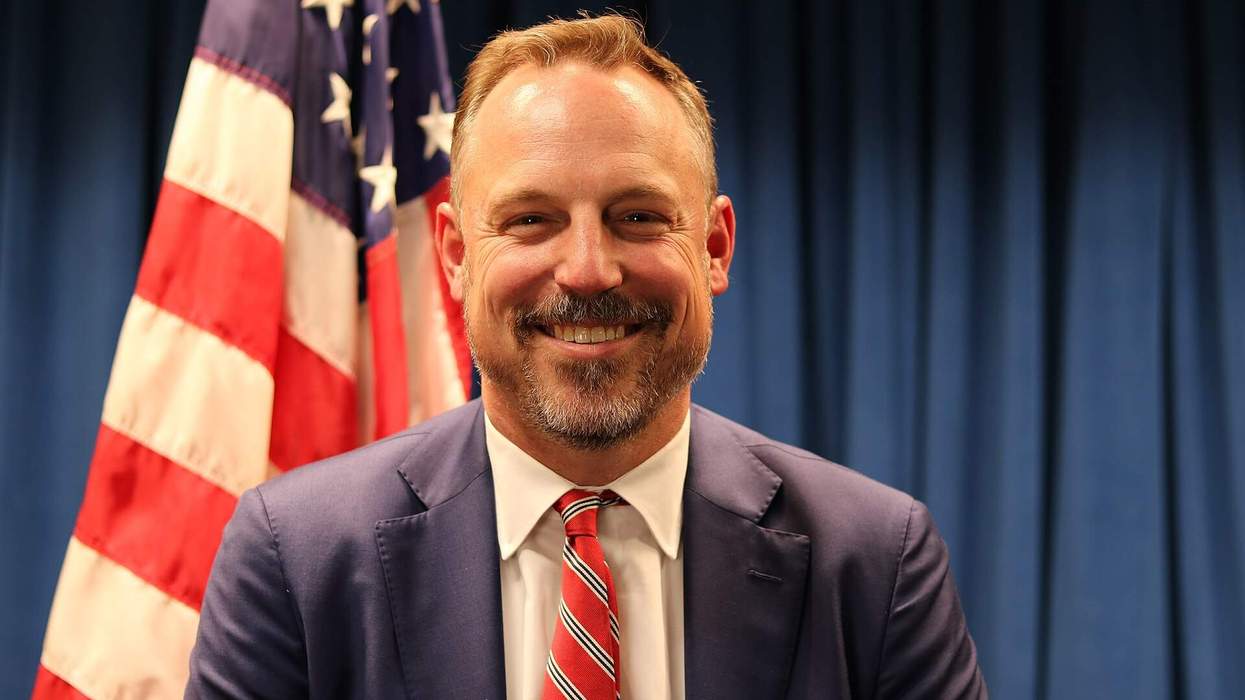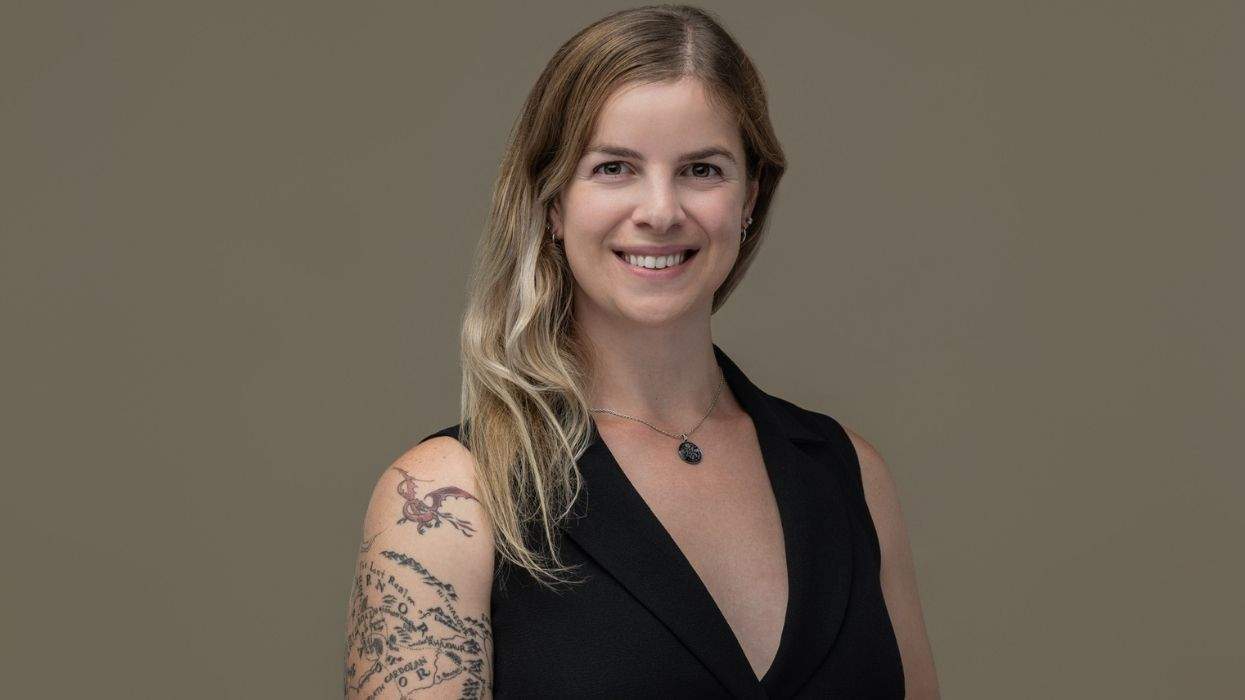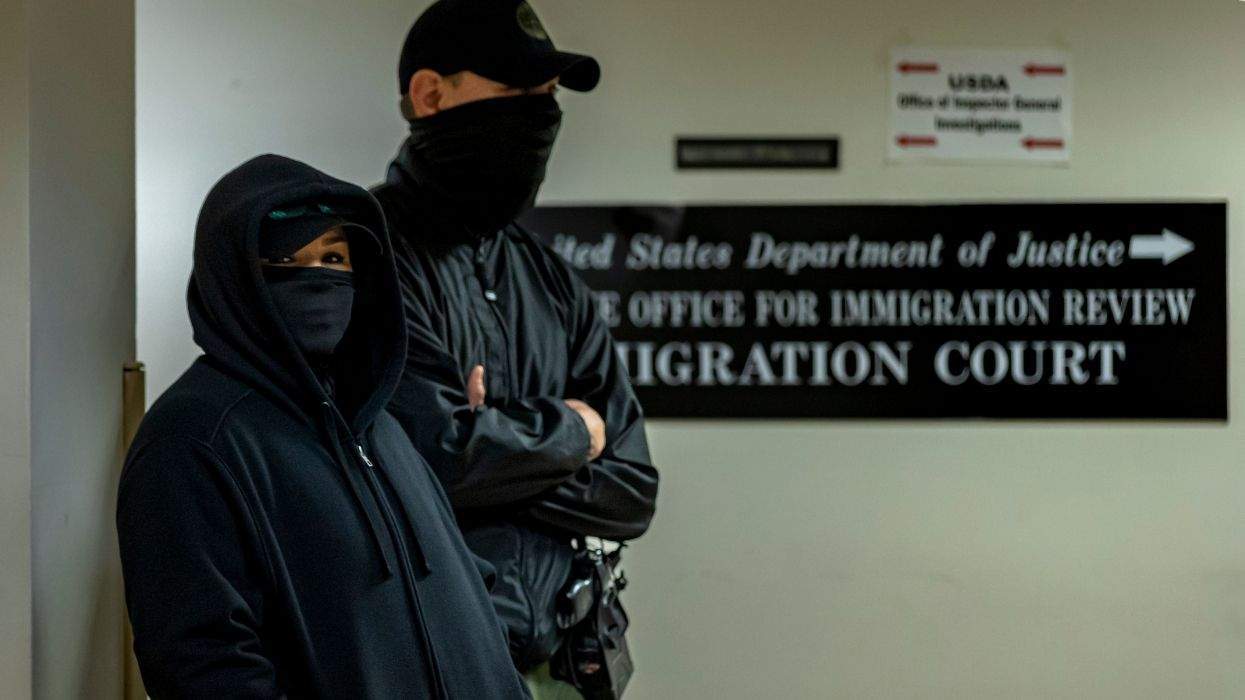The transgender unit at a private prison in New Mexico where unauthorized immigrants were detained -- including one who died shortly after being transferred to a hospital -- has frequently been providing insufficient health care, according to an investigation by the Reuters news service.
Federal agencies' inspections at the Cibola County Correctional Center in New Mexico "found hundreds of unanswered requests for medical attention, poor quarantine procedures and deficient treatment for mental illnesses and other chronic diseases," Reuters reports. The center was U.S. Immigration and Customs Enforcement's only unit dedicated to trans detainees, but all of them were transferred elsewhere in January due to the problems at Cibola.
The inspections were conducted by the ICE health corps and civil rights personnel from the U.S. Department of Homeland Security. Their findings have not been made public, but congressional aides confirmed the information to Reuters. Other investigations have found serious problems at Cibola as well.
Roxsana Hernandez, a 33-year-old trans immigrant from Honduras, died in May 2018 not long after being transferred from Cibola to a hospital. The officially noted cause of death was complications of pneumonia and HIV, but civil rights groups have said she was abused while in custody and that her death was preventable.
In December, lawyers for Hernandez's family filed a complaint against ICE, DHS, and Customs and Border Protection contending the agencies are responsible for her death, having failed to provide adequate medical care. She did not even receive medication for her HIV.
Former Cibola detainees who spoke to Reuters described being denied hormones, blood pressure medication, and other necessary treatment. "Every time we felt sick the first step was to raise a request, but they never answered," said Kelly Aguilar, a 23-year-old trans woman from Honduras who was housed at Cibola for two years, then transferred to a facility in Aurora, Colo.
"When people had fevers, headaches, stomach problems, we just tried to help each other by giving sips of water or buying pills in the commissary, but a lot of times we didn't have money," Aguilar added.
ICE spokeswoman April Grant would not comment on specific findings of the inspections, but she acknowledged "several health care-related deficiencies" at Cibola, such as failing to arrange timely appointments for HIV-positive detainees to see infectious disease specialists. She told Reuters many of the problems have been rectified. But they were serious enough for the two dozen trans detainees at Cibola to be sent to other detention centers, about half to Aurora, the remainder to a unit in Tacoma, Wash.
Amanda Gilchrist, a spokeswoman for CoreCivic Inc., which operates Cibola, said the company was "committed to providing a safe environment for transgender detainees."
Democrats in Congress are calling on ICE to enforce standards the agency adopted for trans detainees under the Obama administration, such as allowing them to be housed according to their gender identity and providing them with hormone treatment, mental health services, and other necessary care. Current ICE officials, however, say these standards are simply guidance and not legally binding. Many prisons under contract to ICE have been unwilling to adopt them. But Grant said some have adopted them "informally" and that she was optimistic more would do so.
Sharita Gruberg of the Center for American Progress was not so optimistic. "Congress is asking ICE to adopt its own standards for care," she told Reuters. But "instead of complying with their own standards and complying with congressional direction, they went with secret option number three of just transferring [detainees] to other private prisons." The center has filed a complaint with ICE over its handling of trans detainees.















Charlie Kirk DID say stoning gay people was the 'perfect law' — and these other heinous quotes
These are some of his worst comments about LGBTQ+ people made by Charlie Kirk.